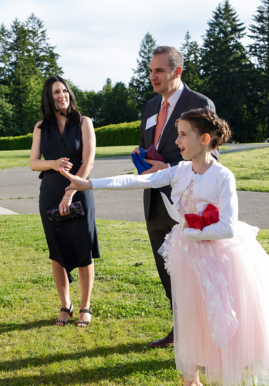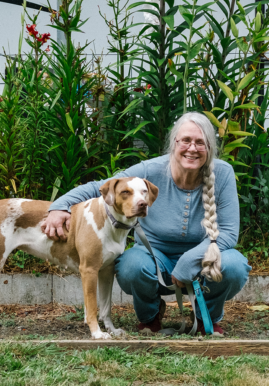Diagnosing autism spectrum disorder can be a complicated and time-consuming process, involving lengthy parent interviews, multiple interactions with the child, and consensus-building among providers. One assessment can take 10 to 14 hours over a month’s time, an agonizing duration for all parties.
“Fourteen hours was too long,” said Raphael Bernier, a UW Medicine specialist in psychiatry and behavioral sciences, and interim director of Seattle Children’s Autism Center. “We get a tidal wave of assessment requests and we couldn’t keep up. So we asked ourselves, ‘How can we make this better?’ ”
Enter Blitz Week, an innovative approach in which Bernier’s team performs more than 100 diagnoses. By contrast, a typical week’s average is 22.
Blitz Week uses a new model, developed at the center, which pairs a psychiatrist or psychologist with a nurse practitioner. Together they make the diagnosis of autism in about three hours. Providers at the center piloted the approach for over a year, led by speech-language pathologist James Mancini.
“We found that one of the biggest drivers of the long assessment time was a provider’s need to reach a consensus with another provider,” Bernier said. “So instead of having two providers make individual assessments, we paired them up and focused their efforts.”
During Blitz Week, the center focuses exclusively on evaluations.
“It’s exhausting,” said Jennifer Gerdts, UW assistant professor of psychiatry and behavioral sciences. “We’re all totally spent. But then six months later we forget and we want to try it again.”
The team-eval model is not only more satisfying to parents of children being screened, but also improves diagnostic consistency. Individual providers’ rates of diagnosing autism from a patient screening can vary, based on the provider’s experience and discipline. A diagnosis informed by a multidisciplinary team of providers is less prone to that variability, Bernier said.
He is keenly aware that the diagnosis of autism is only the beginning. Once diagnosed, a child needs to receive treatment that is often unavailable in his or her home community. This is especially true in the rural Pacific Northwest.
“Many community providers don’t feel comfortable treating autism,” said Bernier. “They feel like they don’t have the appropriate training.”
To combat that problem, Bernier teaches a Certificate in Autism Studies program geared to clinical psychologists. In its third year, the program’s participation doubled in size between years one and two. He’s also looking into expanding the autism center’s capacity to provide tele-psychiatry consultations.
As of August, the model first used in Blitz Week will replace the singular evaluations long employed at the center and still widely used across the nation.
“It’s this kind of out-of-the-box thinking that will accelerate our ability to make a difference in Washington and the WWAMI (Washington, Wyoming, Montana, Alaska, Idaho) region,” said Jürgen Unützer, UW professor and chair of psychiatry and behavioral sciences. “There is a limited number of mental health professionals and a huge need. We have to work smarter, and that’s what Dr. Bernier and his team are doing.”




